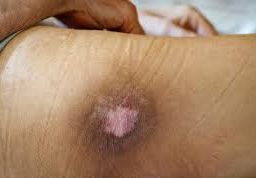
What You Need to Know Before Applying for a Maternity Grant
The Maternity Grant in St. Lucia stands as a beacon of support for expectant mothers, offering vital financial assistance during the transformative journey of motherhood.

Bringing a new life into the world is a joyous occasion, but it also comes with its fair share of financial responsibilities. Recognizing the importance of supporting mothers during this crucial period, the government of St. Lucia has introduced a Maternity Grant program. This initiative aims to provide financial assistance to expectant mothers, ensuring that they have the necessary resources to provide for their newborns. To qualify for a maternity allowance, a woman must have been in insurable employment prior to making a claim and have paid contributions for at least seven months within the ten months leading up to the expected month of confinement. In this post, we will delve into the details of the Maternity Grant in St. Lucia, exploring its eligibility criteria, application process, benefits, and the positive impact it has on the lives of mothers and their children.
Purpose

A maternity benefit in St. Lucia consists of a maternity allowance and a maternity grant. The maternity allowance is a payment made to women who meet certain eligibility criteria. To qualify for a maternity allowance, a woman must have been in insurable employment prior to making a claim and have paid contributions for at least seven months within the ten months leading up to the expected month of confinement. The maternity grant is provided as a one-time payment to eligible women in addition to the maternity allowance. It serves as financial assistance to help cover the expenses associated with childbirth and the care of the newborn.
Eligibility Criteria
To be eligible for the Maternity Grant in St. Lucia, expectant mothers must meet certain criteria: a woman must meet the requirements for maternity leave and benefits under the National Insurance Corporation Act. This includes being in insurable employment and having made the necessary contributions as per the regulations. Firstly, they must be citizens or legal residents of St. Lucia. Additionally, they should have been residing in the country for at least one year prior to their application. Furthermore, applicants must be at least 16 years old and not be receiving any other form of maternity benefit from the government or any other organization. These criteria ensure that the grant is provided to those who truly need it and helps in targeting the most vulnerable and economically disadvantaged mothers.
However, a woman may be disqualified from receiving a maternity allowance if she receives full wages or salaries from her employer during the maternity leave period, continues working during the period, or does not have the required seven months of contributions in the ten months before the month of confinement.
Application Process
The application process for the Maternity Grant in St. Lucia is straightforward and user-friendly. Expectant mothers can obtain the application form from their nearest Social Development Office or download it from the official government website. The form requires applicants to provide personal information, such as their name, address, contact details, and proof of residency. Additionally, they must submit supporting documents, including a valid identification card, proof of pregnancy, and proof of income (if applicable). Once the application is complete, it can be submitted to the Social Development Office for review.

Medical Certificate of Confinement
To receive the maternity grant, the woman is required to submit a properly completed Medical Certificate of Confinement form. This certificate is usually provided by a medical practitioner or healthcare professional and serves as proof of confinement or childbirth. It confirms that the woman has given birth within the eligible period.
Benefits
The Maternity Grant in St. Lucia provides expectant mothers with one-time financial assistance to help cover the costs associated with childbirth and early childcare. The grant amount is set at XCD $600, which can go a long way in purchasing essential items such as diapers, baby clothes, and formula. This financial support not only eases the financial burden on mothers but also ensures that their newborns have access to the basic necessities required for a healthy start in life. Moreover, the grant empowers mothers to make informed choices regarding their healthcare and the well-being of their children.
Positive Impact
The Maternity Grant in St. Lucia has had a significant positive impact on the lives of mothers and their children. By providing financial assistance during this critical period, the grant enables mothers to focus on their health and the well-being of their newborns without worrying about the financial strain. It ensures that mothers have access to quality healthcare services, including prenatal check-ups, vaccinations, and postnatal care. Additionally, the grant helps in reducing the risk of maternal and infant mortality by promoting safe childbirth practices and encouraging mothers to seek medical assistance when needed. Furthermore, the financial support provided by the grant contributes to poverty reduction and social development by empowering mothers to provide a nurturing environment for their children.

Amount
The maternity allowance is paid for a maximum of three months, starting from the month before the expected confinement but no later than the date of confinement. If the woman returns to work before the three-month period ends, the benefit will cease on the last day of her maternity leave.
In addition to the maternity allowance, there is also a maternity grant in St. Lucia that is a fixed amount of XCD $600. This lump sum payment is paid upon submission of a properly completed Medical Certificate of Confinement form. It is intended to provide some financial support during the maternity period. The rate of the maternity allowance is calculated as 65% of the average of the woman’s earnings over the ten months immediately preceding the month before the expected confinement.
Overseas Birth
In cases where the baby is born outside of St. Lucia, a birth certificate must be submitted along with the application for the maternity grant. This is to verify the birth location of the child and ensure compliance with the eligibility criteria.

The Maternity Grant in St. Lucia plays a vital role in supporting expectant mothers and ensuring a bright future for their children. By providing financial assistance during this crucial period, the grant helps alleviate the financial burden on mothers and enables them to provide for their newborns. The eligibility criteria and application process are designed to ensure that the grant reaches those who truly need it. The positive impact of the grant is evident in improved maternal and child health outcomes, reduced poverty levels, and enhanced social development. It’s important to note that the maternity grant is a one-time payment and is separate from the maternity allowance, which is a regular payment over the duration of the maternity leave. The maternity grant provides additional financial support to help cover the costs associated with the arrival of the newborn. As St. Lucia continues to prioritize the well-being of its citizens, the Maternity Grant remains a valuable resource in promoting the welfare of mothers and their children.
It is recommended to consult official government sources or the National Insurance Corporation (NIC) of St. Lucia for additional information on maternity benefits.
Disclaimer: The information provided in this content is for general informational purposes only. It is not intended as medical or healthcare advice, diagnosis, or treatment. Always seek the advice of a qualified healthcare professional with any questions you may have regarding a medical condition or healthcare decisions.















